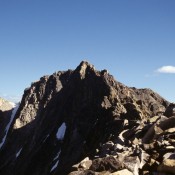
Climbing and access information for this peak is on Page 183 of the book. One of the most popular peaks in the Sawtooth Range, Decker Peak has been climbed from many directions. USGS Mount Cramer … Continue reading

Climbing and access information for this peak is on Page 183 of the book. One of the most popular peaks in the Sawtooth Range, Decker Peak has been climbed from many directions. USGS Mount Cramer … Continue reading
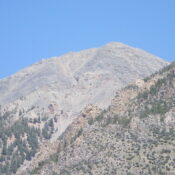
Climbing and access information for this peak is on Pages 266-267 of the book. The book lists the elevation at 10,716 feet. LiDAR measurements list the peak an elevation of 10,721 feet. McGowan Peak, which is the name in local usage, is identified as McGowan Benchmark on the LOJ website. Livingston Douglas added a more detailed description of the book’s … Continue reading
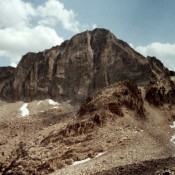
Climbing and access information for this peak is on Page 199 of the book. One of the highest Sawtooth Range summits, Mount Cramer is usually climbed from the east. It has a nearly vertical West Face that towers over the Cramer Lake Basin. The eastern approach is not nearly as treacherous. USGS Mount Cramer … Continue reading
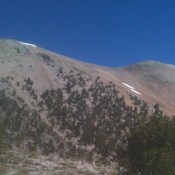
Climbing and access information for this peak is on Page 304 of the book. Based on LiDAR measurements, the elevation of this peak has increased by a foot. Livingston Douglas has completely revised this page. Updated November 2024 Peak 10724 is located northwest of Meadow Lake and south-southwest of Portland Mountain. It is a ranked hump on the elongated southwest … Continue reading
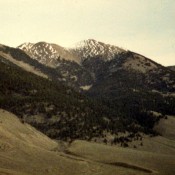
Climbing and access information for this peak is on Page 304 of the book. This “Point” is a peak in every respect. It is a great hike via its deteriorating trail. In 1992, the trail to the abandoned lookout was in fair shape. We spotted sign of goats on the ridge south of the summit. Nearby Bear Mountain can be … Continue reading
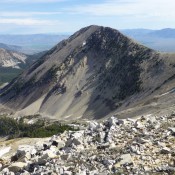
Climbing and access information for this peak is on Pages 303-304 of the book. Livingston Douglas added additional photos. LiDAR measurements have increased the elevation of this peak by 4 feet. Updated November 2024 Portland Mountain is located due west of the ghost town of Gilmore, Idaho and east of the main Lemhi Crest. USGS Gilmore … Continue reading